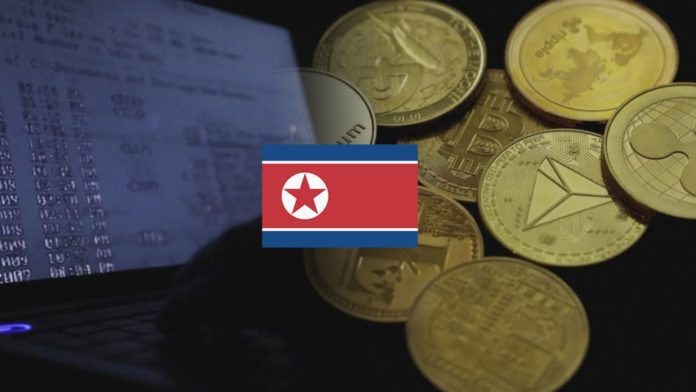This article was originally published in Digital Times and translated by OKN Correspondent.
The estimated amount of suspicious foreign exchange remittances via South Korean banks seems to reach $6.54 billion. In its interim announcement last month, the South Korean Financial Supervisory Service (FSS) announced the amount as $5.37 billion; however, the total amount increased after the banks reported the results of their self-audits. The amount confirmed by Woori Bank and Shinhan Bank alone amounted to $3.39 billion.
◇ Money sent to Hong Kong and China via cryptocurrency exchanges
Most of the transactions reported to the FSS are funds transferred from South Korean cryptocurrency exchanges. A large number of funds from cryptocurrency exchanges arrived in places such as Hong Kong and China via South Korean banks after being collected at South Korean trading companies handling jewelry, cosmetics, and semiconductor parts. Such transactions seem highly illegal due to overlapping CEO and employee names among several companies and large-scale remittances in contrast to the companies’ history and size.
Earlier, the anti-corruption department of the Prosecution Service in Daegu, South Korea, arrested three people related to such “front companies.” Their charge was the violation of the “Enforcement Decree of the Act on Reporting and Use of Certain Financial Transaction Information” and “Foreign Exchange Transactions Act.” It became known that they received several millions of dollars as a commission by assisting overseas remittances via South Korean banks.
Abnormal overseas bank remittances may be highly related to arbitrage trading aimed at “Kimchi Premium.” “Kimchi Premium” refers to transactions where South Korean domestic virtual assets are traded at higher prices overseas. However, one cannot neglect that such remittances may be connected to funds to North Korea. Thus, in addition to the Prosecution Service, the National Intelligence Service and the Korea Customs Service are also examining the flow of strange foreign exchange transactions.
◇North Korea uses cryptocurrency as a new source of funding
The time when North Korea, suffering from economic sanctions by the United States, started using cryptocurrency as a new funding source overlaps with when abnormal overseas remittances occurred via South Korean banks.
Alejandro Cao de Benos from Spain, president of the pro-North Korean “Korea Friendship Association (KFA),” hosted a cryptocurrency conference in Pyongyang in April 2019 at North Korea’s request. He invited Virgil Griffith from the United States and Douglas Emms from the United Kingdom as speakers at the conference. FBI suspects that Griffith and Emms, both California Institute of Technology graduates, proposed cryptocurrency trading methods to North Korean officials on how to evade US sanctions.
The second conference planned for 2020 was canceled after the US authorities arrested Griffith. Griffith has since been sentenced to prison in a US court, and Cao de Benos and Emms are wanted by the FBI.
◇ Help from the mayor of Seoul?
The US investigators suspect Griffith and Emms attempted to build a node (network participants) of Ethereum, a cryptocurrency, in North Korea and sought help from the mayor of Seoul. Such attempts were revealed in Griffith’s trials in the District Court Southern District of New York.
Although it is unknown whether Griffith actually received help from the mayor of Seoul, it is highly likely that the FBI conducted investigations related to this issue. While there were restrictions due to the Moon Jae-in administration in power at the time, the FBI called then Justice Minister Han Dong-hoon to the United States and requested cooperation in the investigation soon after the new South Korean administration took power.
In the United States, there are growing calls for South Korea to respond offensively to North Korea’s cryptocurrency hacking. In a panel discussion hosted by the Center for New American Security (CNAS), a private research institute in Washington, DC on August 9, former FBI analyst Nick Carlson said, “The United States and South Korea need information exchanges on people and the network involved in money laundering through remittances, foreign exchanges, and front companies as North Korea attempts to convert virtual currencies into legal tenders such as dollars and euros.” Carlson was in charge of cyber sanctions against North Korea at the FBI.
◇The US may sanction South Korean banks, ROK government is in dilemma
However, it may be difficult for the South Korean government to rashly announce that suspicious foreign exchange remittances via South Korean banks are related to funds to North Korea. South Korean banks may be on the US sanctions list if it becomes clear that they assisted in sending funds to North Korea. In that case, providing normal financial services inside and outside South Korea may become difficult.
Thus, it seems that the Financial Supervisory Service, Prosecution Service, and National Intelligence Service are holding their breath, although they are examining abnormal foreign exchange remittances of banks omnidirectionally. At a press conference at the FSS on August 16, the head of the institution, Lee Bok-hyun, said, “If required, we sent materials to the Prosecution Service or Korea Customs Service, and we will send additional materials if there should be more. However, I am not sure if the FSS will be able to get to the bottom of this problem even if the bank inspection is complete.”



